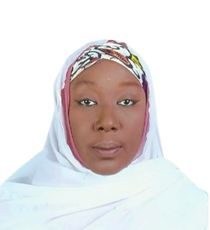Hon. Khadija Waziri Bukar Abba Ibrahim: From Family Legacy to Federal Leadership
Born into one of Yobe State’s most prominent political families, Khadija Waziri Bukar Abba Ibrahim was shaped early on by public service. She arrived in the world on January 6, 1967, the daughter of Waziri Ibrahim—a businessman, parliamentarian, and co-founder of the Nigerian People’s Party. Young Khadija began her education at Kaduna Capital School (1972–1977), continued at Queen’s College, Lagos (1978–1980), and completed her secondary studies at Headington School in Oxford, UK (1980–1983). She then pursued a National Diploma in Business and Finance at Padworth College, Reading, before earning a B.Sc. in Business Studies and Sociology from the Roehampton Institute (affiliate of University of Surrey) in 1989 WikipediaFacebook.
Building Expertise in Business and Insurance
Upon graduation, Khadija honed her skills in the UK financial sector—managing mortgage accounts at Abbey National and handling freight client relations at Hatton Cross Heathrow. In 1992 she returned to Nigeria as Marketing Officer for Kaguin Nigeria Limited, then became Manager at OURS Insurance Brokerage. By 1996, she launched her own firm, ZAFACA Nigeria Limited, serving as CEO/Managing Director until 2004. This period taught her leadership, negotiation, and strategic planning skills that would prove invaluable in public office Wikipedia.
Stepping into Public Office: Yobe State Commissioner
In 2004, Khadija received her first political appointment as Yobe State Commissioner for Transport and Energy. Over two years, she expanded rural power supply, upgraded road networks, and introduced passenger-safety measures. In 2006 she shifted to a quasi-public role as Resident Commissioner for Nicon Insurance, overseeing government-sector accounts. These roles cemented her reputation as an effective administrator committed to infrastructure and economic development National Assembly.
A Three-Term Legislator
Khadija’s transition to elective politics came in 2007, when she won her first term in the House of Representatives for the Damaturu/Gujba/Gulani/Tarmuwa Federal Constituency. She secured re-election in 2011 and 2015, serving continuously until October 2015. During the 6th and 7th Assemblies, she held deputy and committee chair positions across Rural Development, Communications, and Rural Privatisation & Commercialisation—championing bills on agricultural funding, telecoms expansion, and market deregulation Wikipedia.
Minister of State for Foreign Affairs
In November 2015, President Muhammadu Buhari appointed Khadija as Minister of State for Foreign Affairs. Over three years she represented Nigeria at international summits, negotiated bilateral agreements, and supported diaspora outreach programs. Her tenure emphasized women’s inclusion in diplomacy and the African Continental Free Trade Area (AfCFTA) talks. In January 2019, she resigned to focus on returning to the House, demonstrating her conviction that legislative service was her most effective platform for local impact Wikipedia.
Returning to the National Assembly
True to form, Khadija reclaimed her Constituency seat in the 2019 elections, marking her fourth term. She rejoined the House with renewed focus on education, women’s empowerment, and infrastructure. As a senior member of committees on Appropriation, Interior, and Women’s Affairs, she sponsored amendments to boost federal funding for girl-child education and road rehabilitation in North-East Nigeria—melding her early transport portfolio experience with constituent needs Constrack.
Key Legislative Achievements
- Education Access Act: Secured scholarships for students in conflict-affected zones.
- Women in Politics Bill: Mandated 35% female candidacy quotas for all major parties.
- Infrastructure Revival Initiative: Allocated earmarked funds for rural road and power projects.
These signature measures underscored Khadija’s belief that sustainable development springs from education, representation, and connectivity.
Challenges and Enduring Legacy
Throughout her career, Khadija navigated the complexities of party politics, electoral contests (including a high-profile primary against her stepson in 2018), and ministerial-legislative transitions. Yet her consistency—four terms in the House and a federal ministry—speaks to both her political acumen and her constituents’ trust. As The 35% Project charts the path toward fuller women’s representation, Hon. Khadija Bukar Abba Ibrahim stands as a compelling example of leadership forged at the intersection of family legacy, professional expertise, and unwavering public service.
